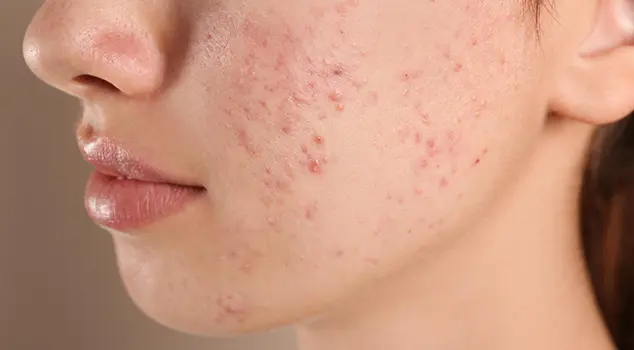
Acne is a chronic and inflammatory skin condition that causes spots and pimples, especially on the face, shoulders, back, neck, chest, and upper arms. Acne occurs when the skin's pores, which open to hair follicles, are clogged with oil, dead skin cells, and bacteria.
Each hair follicle has a single hair and a sebaceous gland, which produces sebum, a type of oil that keeps the skin lubricated and soft. But, factors like hormones, etc., cause these glands to produce excess sebum pumped out through the follicle. It collects dead skin cells and bacteria while going out.
This accumulation of oil, dead skin cells and bacteria forms a plug. The body then reacts to this plug by sending its white and red blood cells to fight this infection, leading to inflammation and redness.
Acne can appear on the face, back, neck, chest, arms, and buttocks. When this acne gets out of control and spreads, then this situation is called an Acne Breakout.
The main factors that cause acne are:
The factors responsible for aggravating acne breakouts are:
A dermatologist will help the patient in:
The doctor will recommend the acne removal treatments depending on the patient's age, severity, type of breakout, and willingness for the treatment.
Some of the pimple treatment options the doctors might recommend are:
Contact Dr.Jasdeep Kaur for the best Acne Treatment in Gurgaon.